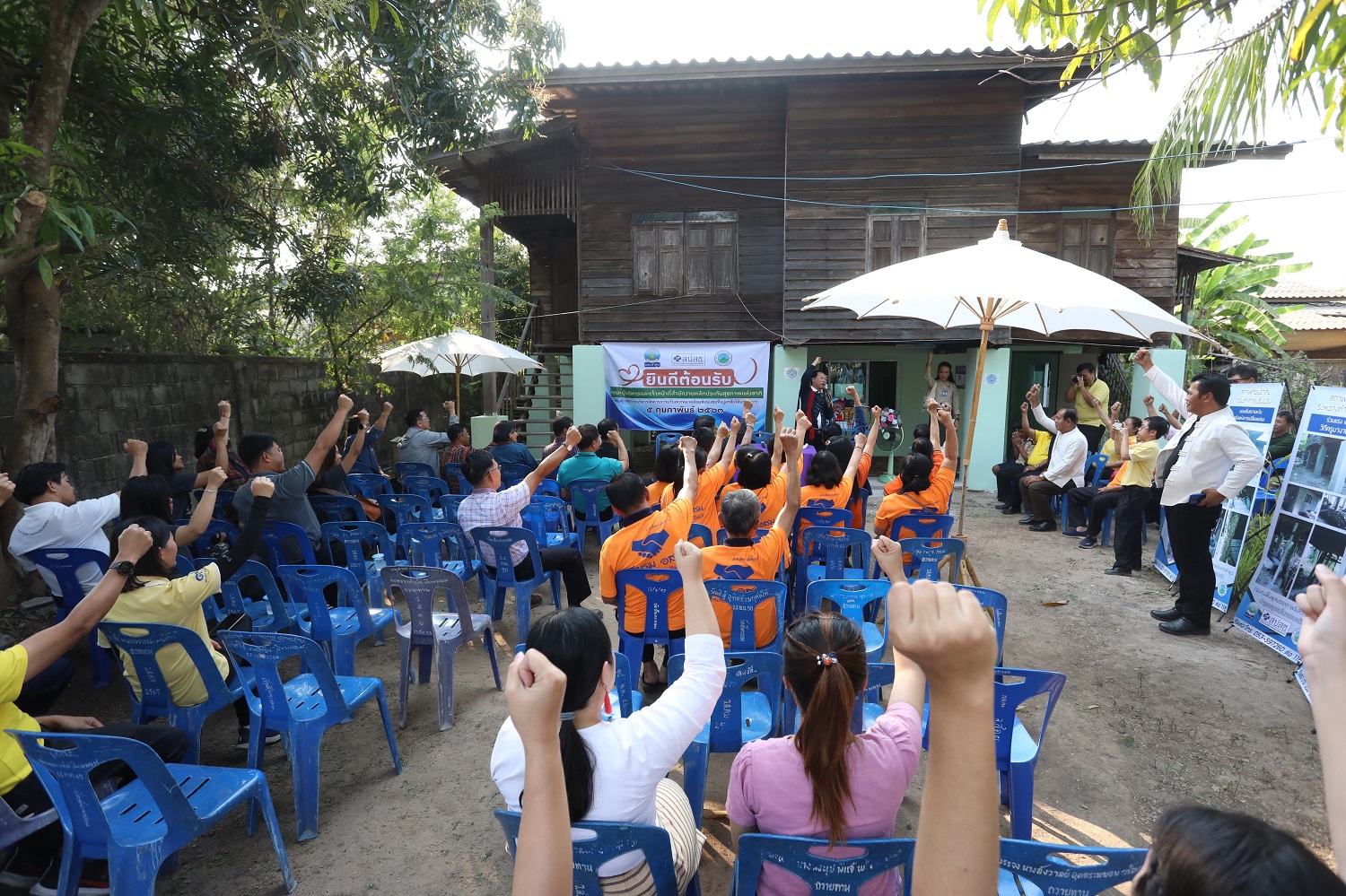
- Home
- DescriptionNews
Enhance the role of local government organizations in Thai health system

Dr. Jakkrit Ngowsiri, Deputy secretary-general of National Health Security Office (NHSO)
Many people have praised the village health volunteers for being the "unsung heroes" who work to support the fight against the COVID-19 outbreak in Thailand. But we should also address the other prominent players of this battle: the local government organizations.
They have played a big part in strengthening primary care in local areas, which in return increases the health resilience of local communities and improves the Thai health system as a whole.
The National Health Security Act 2002, the law that mandates the establishment of the National Health Security Office (NHSO) and its governing body, encourages the process of participation of local government organizations according to their readiness, reasonableness and the needs of people in catchment areas.
Local government organizations are the mechanism that decentralizes power and governance activities while increasing the efficiency of resource allocation in Thailand. There are different levels of them — such as the Provincial Administrative Organization (PAO) known as OrBorJor, Subdistrict or Tambol Administrative Organization known as OrBorTor, and municipality.
Their leaders come from local elections, so they must respond to local demands and the need for better healthcare access. They also have the advantage of living close to local people, so they understand local context and health problems better than the central government.
As health providers are focusing more on treatment with their workload and the health workforce is in shortage, local government organizations have the great potential to fill up this gap.
Therefore, the NHSO has engaged them through several programs funded by the budget of Universal Health Coverage (UCS).
For example, the Provincial Rehabilitation Fund was launched in 2009 aiming to support PAO or OrBorJor to provide care and assistive devices to people living with disabilities, aging persons and patients requiring rehabilitation.
The Community Health Fund (CHF), introduced in 2006, is another program that empowers OrBorTor and municipality while encouraging them to promote good health in their areas.
Under the CHF, they can propose projects that relate to primary care, community-based care or health promotion, and disease prevention for residents, regardless of their registered healthcare schemes. They can design to propose the project activities by themselves, or use the NHSO's guideline to find the types of projects that match the local people's needs.
Community Health Funds (CHF) made up of matching contributions from the NHSO and local government, which aims at improving individual health promotion and prevention activities including community health (principally focus on proactive prevention and promotion service for a person in each target group to improve the accessibility gap) , and to empower local administrative officers and community groups. In rural areas, the local government organization is the sub-district administration organization, while in urban centres it is the municipality. Initially, NHSO allocated 45 Baht per capita to the fund, and the local government organizations provided a matching allocation of not less than 20, 30, and 50 percent of the NHSO contribution, depending on the size of the organization.
The CHF committee is chaired by the chief executive of the sub-district administration organization /municipality. To assure the transparency of budget spending, local government organizations must set up a local committee to monitor and manage the projects — by participating multi-stakeholders from cross sectors including representatives from health personnelhealth volunteers in local areas, civic groups, and even representatives from schools and temples if they are parts of the projects.
The CHF is relatively successful in promoting good health and strengthening local participation in the health system. Only 888 out of local government organizations joined CHF during the very first years of its introduction. Around 99% of them are currently taking part in the program.
In 2017, their effort was globally recognized when Khao Phra Ngam Municipality in Lop Buri province had been awarded the Second Prize in Innovation and Excellence in Delivering Health Services of the United Nations Public Service Awards (UNPSA).
The municipality's innovative project called "Excellent Happy Home Ward," partly supported by the CHF, helps upgrade the life quality of bedridden patients and elderly members. It integrated technologies and community-based care to advance local access to homecare.
Another concrete evidence for the CHF's success is the significant role of local government organizations during the COVID-19 outbreak. They' ve taken the lead in fighting and preventing the coronavirus a well as educating local communities about the disease.
With the fund from the CHF, local government organizations could obtain the resources to conduct the COVID-19 screening, taking care of persons under self-quarantine, and paying allowances to village health volunteers who provide homecare to community members under the travel restriction.
Distributions of free alcohol gels, masks, and thermometers to residents are the typical activities among the CHF recipients.
It's clear that the CHF boosts the capacity of local government organizations to handle health crisis — after many years of their experiment in managing health projects and collaboration with health-relevant players.
The NHSO will promote the role of local government organizations even more in the future, by motivating them to come up with more innovative ideas and expand their networks working on health issues.
We will support them to create the database on local people's health, so we will be able to allocate resources more effectively and select activities that fit the local context.
Finally, we want to create their sense of ownership over the universal healthcare coverage. When they have that sense, they will participate in improving the health system and collaborate in promoting good health.
.jpg)
Dr. Jakkrit Ngowsiri, Deputy secretary-general of National Health Security Office (NHSO)

